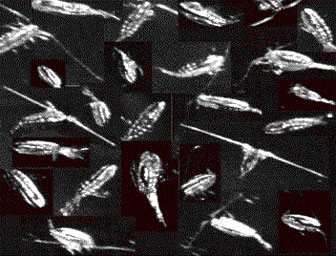Global warming, cod collapse cause changes in Atlantic ecosystem
Global warming, cod collapse cause changes in Atlantic ecosystem
mongabay.com
February 22, 2007
North Atlantic ecosystems are undergoing rapid change due to overfishing and global warming reports a Cornell University oceanographer in the February 23 issue of the journal Science.
Charles Greene, director of the Ocean Resources and Ecosystems Program in Cornell’s Department of Earth and Atmospheric Sciences, says that while other scientists have argued that ecosystem change is the result of the population crash of cod, be has found evidence that climate change is playing a significant role in the region.
“It is becoming increasingly clear that Northwest Atlantic shelf ecosystems are being tested by climate forcing from the bottom up and overfishing from the top down,” said Greene, who co-authored the paper with Andrew Pershing of the University of Maine. “Predicting the fate of these ecosystems will be one of oceanography’s grand challenges for the 21st century.”

Tiny free-floating plants and animals, like Algae and copepod species near the bottom of the food chain, have increased in the Northwest Atlantic shelf ecosystems as a result of ocean climate changes. The copepods (Calanus finmarchicus) shown here are about 2.5 millimeters in length. Courtesy of Cornell University. |
Greene and Pershing write that climate-drive shifts in Arctic wind patterns and “freshening” due to melting ice in the Arctic and Greenland have affected ocean currents in the North Atlantic. These shifts have “led to changes in the seasonal cycles of phytoplankton (tiny free-floating plants like algae), zooplankton (tiny free-floating animals like copepods) and fish populations that live near the surface,” reports a Cornell University news release. At the same time, they note, marine biodiversity has been impacted by the cod population crash caused by overfishing. The authors argue that the collapse of cod populations does not fully explain why phytoplankton and zooplankton populations have seen seasonal shifts. They say these two factors, working in concert, are responsible for changes in the North Atlantic ecosystem.
“We suggest that, with or without the collapse of cod, a bottom-up, climate driven regime shift would have taken place in the Northwest Atlantic during the 1990s,” Greene said.
This article is based on a Cornell University news release by Krishna Ramanujan.














